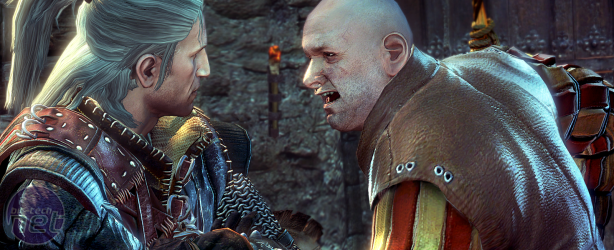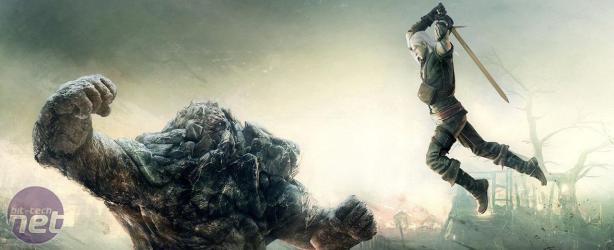
The Witcher 2 Interview
When we sat down at GamesCom in Cologne to look at CD Projekt’s The Witcher 2: Assassin of Kings we thought it was far and away the best game of the show – and not just because the development team were the only ones who retained their sense of humour throughout a very stressful show.So, when we got a chance to sit down with Tomasz Gop, The Witcher 2’s Senior Producer, we were eager to find out more about the game. Here’s what we found out…
Bit-Tech: Would it be fair to say The Witcher 2 is more action-focused than the first one? It looks like it’s moved towards more of a hack-and-slash style in some of the trailers.
CD Projekt: Actually, there are more lines of dialogue in the second game, there are just more ways of depicting them. Right now, dialogues have different interfaces and the way you choose them can be different. Characters move during dialogue, they even interact or fight during dialogue. So, this game does have more action than the first game, but I honestly can't say it's even a little bit less of an RPG than the first Witcher.
BT: In terms of character development, at the end of the first game, Geralt (the main character) is really strong, but starting that strong in the sequel could be a problem. Is he really weak at the beginning of The Witcher 2?
CDP: What we did was…you don't learn new things in The Witcher 2, for example new spells. I mean, there is one new spell, but…Basically, you extend your knowledge in each one rather than learning new things. We changed the way Geralt develops in this game, but it's very important to know you are a witcher from the very beginning. You're not just someone who doesn't even know how to handle a sword, you're a witcher at the beginning and you'll be getting better and better. It is a sequel in every way.
BT: Do you feel as if the Witcher licence held you back at all? Can it be hard sometimes to work within the limits of someone else’s fiction.
CDP: No. We have a non-generic fantasy world and we can draw from Sapkowski a lot, which means we can focus on developing our own unique elements and story ideas.
No, I don't think we were held back, it gives us more freedom to explore the story. The things that happen in the game are ours, we developed them. We only have the background and the main hero, and we're starting to connect things that happen in the books with events in the game. Since our story happens after the books, it's capped, but he'll start remembering things and maybe some characters he once knew will come back.
BT: How has the combat system changed?
CDP: A lot of people complained about combat being too difficult or too hardcore in the original game. It was immersive, it required you to focus on the screen. If you chose the hard difficulty level, you didn't even have the blinking icon that told you when to attack, you had to rely solely on the swishes of your sword to know when you had to click.
In The Witcher 2, we redesigned the combat, it now works in a different way, but the major thing we want to show to people is that there's as much depth as there was in The Witcher 1 - the difference is not everything is obligatory.
You don't have to click at that precise moment to progress through the fight, for example, and you can mix strikes of your sword and magic freely. You're not bound to any predefined set of strikes or style or stance. The game is very scalable, so if you want to focus on the story, you can go through without having any major problems with combat or enemies, but if you want the game to be a challenge, you can play on different difficulty levels and you will have to use all of the features that we have in the game, because we will make you use them!
BT: You’ve said there are 16 endings for the new game - how different are they? Are they all very different or are a lot of them almost identical, just with minor differences?
CDP: The endings in The Witcher 2…I usually call them the 16 states in which you can leave the world behind you, so it's not like just 16 different cutscenes at the end. It's more about changing the world that you're in, or the NPCs that are alive or dead. The story of the huge societies that are in the world, because there's lots of politics involved, so it's like those are the states of the world.
Some of the changes are bigger, some are smaller, but I'm sure you'll be able to understand all of them and know why things happened this way. It's not like choose one of the 16 numbers at the end and there you have it. Some of the endings get cut out or cut off at the beginning or close to the beginning of the game, for example. It's not just all about the last act; it takes the whole game into account. There are more factors that affect the world than in the first game, because in The Witcher 1 it was mostly about alliances, but here, alliances are just one of the factors that influences how the story branches.

MSI MPG Velox 100R Chassis Review
October 14 2021 | 15:04











Want to comment? Please log in.